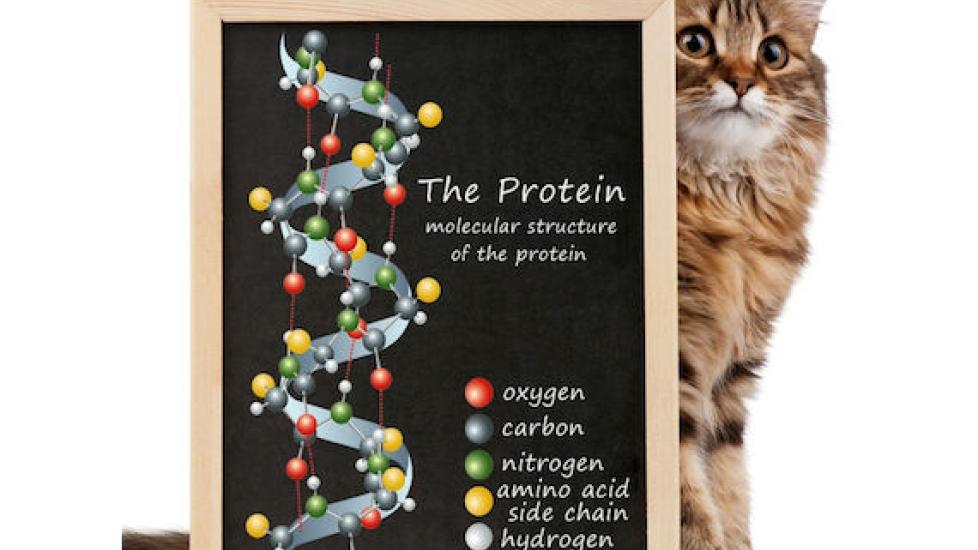Optimal Nutrition Gives the Immune System a Boost
Veterinarians and human medical doctors have long understood the relationship between poor nutrition and poor immune function. There’s even a term that is used to describe this effect: "immunoparesis." Until recently, what hasn’t been so well understood is how supplementing the diet with certain nutrients can boost the effectiveness of the immune system. This is immunonutrition — a field of study that holds great promise in both the prevention and treatment of disease.
Most people think the sole job of the gastrointestinal system is to break down food and absorb nutrients, but did you know that the GI tract is also home to over 65% of the body’s immune cells? It shouldn’t come as a big surprise then that optimal nutrition and a well-functioning immune system go hand in hand.
Here’s how the situation is described in a 2011 article published in Topics in Companion Animal Medicine.
Lowered immune status because of life stage or naturally occurring stress is characterized by reduced capacity to process and present foreign antigens to immune cells, resulting in a less efficient or altered immune response that leads to increased susceptibility to infections and an increase in autoimmunity and cancers. Beyond providing essential nutrients, diet can actively influence the immune system. Receptors present on the immune cells in the gut are the primary targets for immunomodulation via diet. Diet interacts with the immune system at multiple levels, starting with providing basic nutrients, then moving on to providing higher levels of key nutrients such as protein, vitamins, and minerals, and leading to a more focused modulation of the immune system.
Owners can make use of this important information by making sure that a dog or cat’s diet provides these "higher levels of key nutrients."
Proteins and Amino Acids in Pet Food
Supplemental arginine (an amino acid) has been linked to increased T-cell immune function. T-cells direct and regulate the body’s immune responses and/or directly attack infections and cancers. Because arginine levels do not have to be disclosed on a pet food’s label, it is hard to determine exactly how much of the amino acid a particular diet contains. However, certain ingredients like flax seed, soybeans, chicken, salmon, and eggs all contain high levels of this important nutrient. Look for a food where these items appear towards the top of the ingredient list.
Fatty Acids in Pet Food
Arachadonic acid (AA) is considered a “pro-inflammatory” fatty acid. By competing with AA, optimal dietary levels of the omega-3 fatty acids eicosapentanoic acid (EPA) and docosahexaenoic acid (DHA) can down-regulate the production of prostaglandins, leukotrienes, thromboxanes, and prostacyclins, thereby reducing inflammation in the body. Persistent, low-grade inflammation is known to play an adverse role in almost every type of chronic disease, including arthritis, cancer, and diabetes. Omega-3 fatty acids are found in large amounts in certain types of fish oil and in flax seeds, although cats, and to a lesser extent dogs, have trouble metabolizing flax-derived omega-3 fatty acids.
Antioxidants in Pet Food
Many vitamins and minerals (e.g., vitamins A, C and E, selenium, and zinc) are known to be potent antioxidants that can protect the body against the damage caused by free radicals. Free radicals are a natural end-product of metabolism, so a pet’s diet should always contain an adequate amount of antioxidants. These nutrients become especially important when a pet is sick, however, because free-radical production can increase dramatically when the body is under stress. Ideally, vitamins and minerals should appear on a pet food’s ingredient list as supplements in the form of fruits, vegetables, and other healthy, natural ingredients.

Dr. Jennifer Coates
Source:
Emerging paradigms in immunonutrition. Satyaraj E. Top Companion Anim Med. 2011 Feb;26(1):25-32.
Image: Full image is a compilation of DenisNata and rob3000 / Shutterstock
Last reviewed on July 26, 2015.
Related
Pet Nutrition in People Terms: Weight Gain
